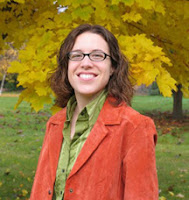What is the greatest strength of your field? In the history profession?
The greatest strength of women’s history is its feminist foundation. As Anne Firor Scott has said, “from the beginning, women’s history developed in close association with women’s activism.” The core assumption of the field since its beginning has been that uncovering women’s pasts is an important step toward shaping women’s futures. Women’s history has been critical to illustrating the social construction of gender and to inspiring activist movements in our own time.
What is the biggest issue facing your field? The biggest challenge facing the history profession?
The biggest issue facing women’s history as a field is the extent to which it is being replaced by “gender history.” In one sense, the history of gender has always been one of the goals of women’s history and so gender history is just a natural evolution of the field. But, in other sense, the many successes of women’s history have lead to the widespread adoption of gender as a category of historical analysis in virtually every field. Obviously, this is a great development in many respects, but the downside is that this dilutes the identity of women’s history as a field of historical study and, in some cases, severs the field from its feminist foundation.
The biggest challenge facing the history profession is the same challenge that is facing all of academe: the deskilling of the profession.
What is the most interesting work being done in your field? Why?
I love scanning recent dissertations in women’s history to see where the field is headed. Here are some that have excited me lately: Katarina Keane, "Second-wave Feminism in the American South, 1965-1980" (University of Maryland, College Park, 2009); Erica Jean Ryan, "Red War on the Family: Sex, Gender, and Americanism, 1919-1929" (Brown University, 2010); Stacie Taranto, "Defending Family Values: Women’s Grassroots Politics and the Republican Right, 1970-1980" (Brown University, 2010). I think that our understanding of anti-feminism in the U.S. is going to be really strengthened in the next decade, and I think the history of reproductive rights movements in the South is still largely untold.How valuable is teaching in the professional development of a career?
Teaching is the career and I think it is important not to lose sight of that. Historians are always teaching someone about the past, whether it is in the classroom, or with published research, or in a public history setting, or just as an intellectually engaged citizen.What direction or type of publishing would you advise a new Ph.D. to conduct?
It depends on the kind of career you want. If you are interested in public history, then publish in local history journals and get savvy about social media and digital history initiatives. If you are interested in public policy careers, then you need to demonstrate that you can write broadly and are not rigidly academic. If you want an R-1 tenure-track job, then your dissertation should be ready for press within a couple years and you should try to publish an article in a top-tier journal by the time you finish grad school (or shortly thereafter). If you want to work at a community college or a regional college, you should engage in the scholarship of teaching and learning and demonstrate that you are passionate about educating first-generation college students.What issues affect most the development of a career: family, school resources, popularity of field, reputation of alma mater, etc.?
Anyone who tells you that the reputation of your alma mater doesn’t factor into hiring decisions is lying to you. It matters, and particularly the reputation of your adviser matters, so choose carefully. The institutional climate and resources at a college and university matter enormously, especially for women, LGBTQ folks, and people of color. Weigh these factors heavily when considering job offers: faculty mentorship programs, research & teaching development funds, childcare facilities, parental leave policies, domestic partnership benefits, and departmental culture. The popularity of your field certainly can help or hinder your job prospects, but your approach to your field matters just as much. If you are innovative in your research, eclectic in your teaching abilities, and creative in your professional skill set, then having a Ph.D. in American history will not be too much of a hindrance.What advice would you give to an undergrad interested in working on a Ph.D. in history?
I would advise taking a year or two off before beginning graduate school to get more work experience, save up some money, and make sure that a Ph.D. is what you really want. If it is, then go for it and don’t let all the naysayers get you down!
What advice would you give to a new Ph.D. unable to find employment in a history department?
Think beyond the academy. When I mentally thumb through the rolodex of my graduate school cohort, only about half of them are currently employed in departments in a college or university. Others are archivists and curators at museums, policy analysts, grant writers, popular history writers, editors, administrators for various undergraduate programs, institutional historians for various government agencies, etc. More importantly, all of those people are fulfilled by the work they are doing and loving life. Your success or failure as a human being doesn’t depend on whether or not you find a tenure-track position.








No comments:
Post a Comment